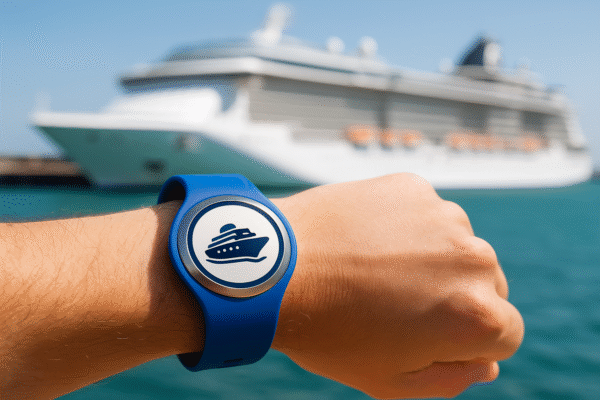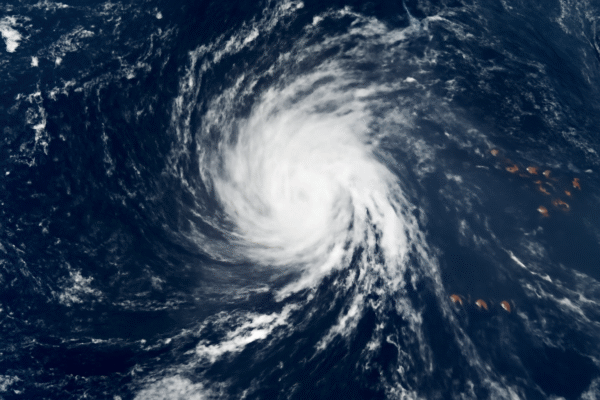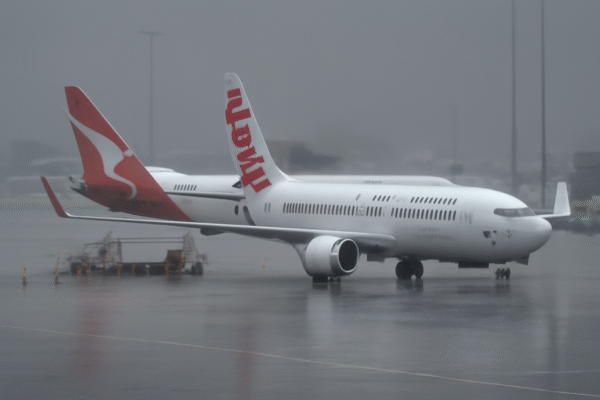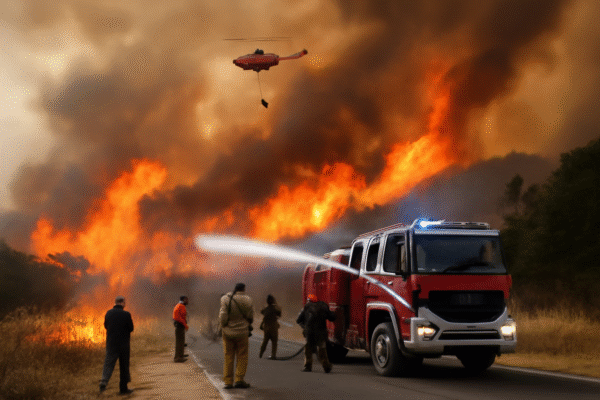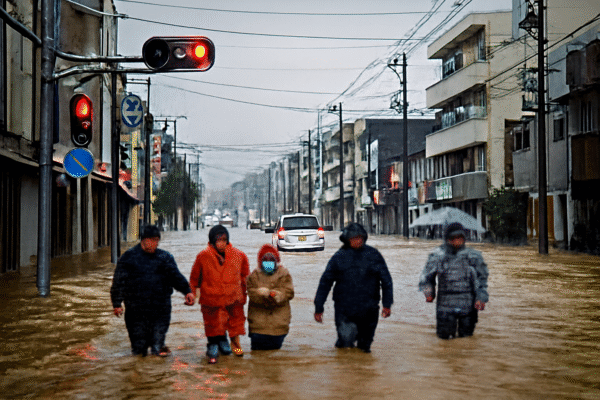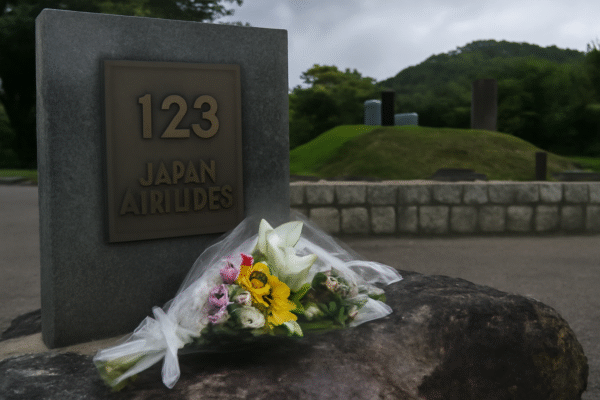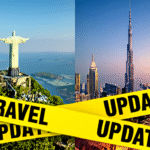The Canadian government has issued a travel advisory urging Canadian citizens to exercise caution when visiting Japan due to severe flooding in the Kyushu region. This advisory, issued in light of ongoing rainfall and the resulting floods that have devastated the southern part of Japan, highlights the risks posed by natural disasters in the area. With Kyushu, Japan’s southernmost major island, facing widespread evacuations and infrastructure disruptions, the Canadian government has stressed the need for travelers to stay updated on local developments and follow official evacuation instructions.
Japan, widely regarded as one of the safest countries for tourists, is currently grappling with this natural disaster. Though Japan remains a top destination for travelers, the recent events have prompted officials to issue this advisory for those planning to visit or already in the affected areas.
The Current Flooding Situation in Japan’s Kyushu Region
The flooding in Kyushu has left many residents and tourists stranded due to torrential rains that have caused rivers to overflow, leading to the evacuation of hundreds of thousands of people. The floods have already claimed lives, with several fatalities reported, while a significant number of individuals are still missing. The Japanese government has mobilized resources to assist the affected regions, but the situation remains fluid, and there is a need for heightened vigilance, especially for those in flood-prone areas.
Although Kyushu is known for its beautiful landscapes, volcanic activity, and historical landmarks, it also faces severe weather patterns, particularly during the rainy season. The Canadian government has advised its citizens to monitor local news channels and weather reports closely, as the flood situation can evolve quickly, making some areas more dangerous without warning.
Canada’s Urgent Advisory for Travelers to Japan
In its travel advisory, Canada has outlined specific precautions for those currently in Japan, as well as those planning to visit. The advisory urges tourists to:
- Monitor local weather conditions and follow emergency instructions from Japanese authorities.
- Stay updated on evacuation orders and be prepared to relocate if required.
- Limit travel to affected regions, especially Kyushu, where the floodwaters are causing significant disruptions to transportation and infrastructure.
- Stay in communication with family or friends, ensuring they are aware of your whereabouts in case of emergencies.
While the flooding crisis is ongoing, Canada continues to classify Japan as a safe travel destination overall, assigning it a “green” safety rating. This classification indicates that Japan remains low-risk for most travelers, and the government still deems it a safe country to visit outside the affected zones. The Canadian government emphasizes that tourists should only be cautious in flood-hit regions and continue practicing general travel safety precautions when exploring other parts of Japan.
Japan’s Safety and Resilience Amid Natural Disasters
Japan’s reputation as one of the safest countries for tourists is reinforced by its robust infrastructure and government preparedness for disasters. Japan regularly experiences natural calamities, including earthquakes, floods, and typhoons, but the country has built a reputation for its ability to mitigate damage and respond rapidly to emergencies. The National Tourism Organization of Japan (JNTO) provides crucial information for travelers, detailing evacuation routes, safety protocols, and important emergency contacts, which are essential during times of crises.
Despite natural disaster risks, Japan remains one of the safest countries for travelers, thanks to the country’s efficient emergency systems, clean and secure public spaces, and a well-maintained health care system. The low crime rate, excellent transport systems, and well-marked disaster safety practices make Japan a preferred destination for millions each year.
However, as recent events in Kyushu demonstrate, natural disasters can strike unexpectedly. While Japan is not prone to issues like violent crime or scams, travelers must always remain aware of the risks posed by seismic activity and extreme weather conditions. Japan’s infrastructure is designed to withstand earthquakes, but floodwaters and typhoons can present significant challenges.
What Tourists Should Do Before and During Their Trip
If you are planning to visit Japan, or if you’re already there, it’s crucial to be aware of the current situation in affected areas like Kyushu. Before your trip, ensure that your travel insurance covers natural disasters and familiarize yourself with the safety procedures for earthquakes and floods. If you’re already traveling in Japan, ensure you have access to a reliable source of information, whether it’s official Japanese news outlets, local weather apps, or updates from the Canadian embassy.
If you’re visiting Kyushu during the rainy season, be prepared for sudden weather changes and stay away from rivers or flood-prone areas. Always follow local guidance, and if an evacuation order is issued, act promptly to ensure your safety. Emergency kits containing essentials like bottled water, snacks, and first-aid supplies can also be helpful in case of sudden disruptions.
The Future of Japan Tourism Post-Disaster
Japan’s tourism industry is resilient, and although natural disasters can be disruptive, the country’s tourism infrastructure is robust enough to handle such crises. Recovery efforts following floods or other disasters are typically swift, and Japan has a track record of bouncing back quickly. With travel restrictions easing and borders opening up after the pandemic, Japan remains a prime destination for international visitors seeking to experience its rich culture, stunning landscapes, and technological marvels.
In conclusion, while Japan remains a generally safe destination, travelers must remain alert, particularly when flooding or earthquakes affect specific regions. Tourists are advised to stay informed about local conditions, follow emergency instructions, and prioritize safety during their travels in Japan, ensuring their trip remains a safe and enjoyable experience.
For more travel news like this, keep reading Global Travel Wire

